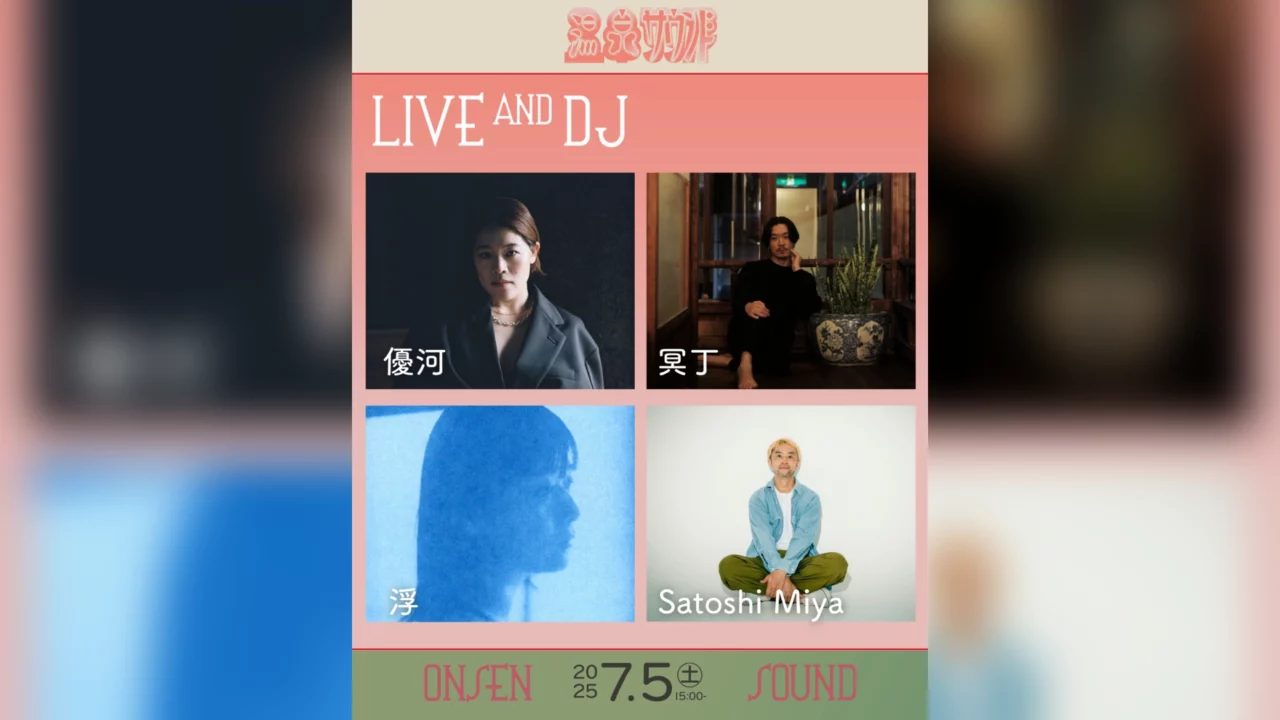“Step Out of This World”—that’s almost what this song seems to propose to its listeners. Nishina’s new track, “plum,” captures the essence of turning away from the “rightness” imposed by the world and yearning to live according to one’s own desires, all set against a pulsating rhythm.
This track, which feels like a love song tinged with a sense of moral ambiguity and also delivers a message of alternative living, was arranged by Yaffle, the producer who recently worked with Nishina in the band for Fujii Kaze’s performance on “tiny desk concerts JAPAN.” The sound, while capturing the tumultuous inner emotions, has a supple physicality that colors the song’s emotional landscape and highlights its sweet allure.
The song doesn’t depict a flawless hero. Instead, it portrays imperfect humans, like you and me, who, by accepting their imperfections, plot to step out of this world. “plum” is that kind of track.
Since last year, Nishina has been releasing singles that exude boldness and a light, free-spirited vibe. We delved into her current mode in an interview.
INDEX
A Childhood of Confusion and Restlessness
The new song “plum” is striking with its sense of moral transgression, and the word “sweetness” in the lyrics seems to perfectly capture the essence of the track. The lyrics seem to depict people trying to deviate from conventional notions of “rightness,” and there’s a consistent sense of your poetics from your first single, “Rendezvous.” What inspired the creation of “plum”?
Nishina: I have a song called “FRIDAY KIDS CHINA TOWN,” and while playing the same three chords used in that track, a melody started to come to me. I thought, “This could turn into a fun, catchy song.” That’s how the creation of the song began. As for the motif of “plum,” I’ve wondered since I was young why plums are sour on the outside even though they’re fruits. Unlike other fruits that are sweet, it didn’t make sense to me that only plums are sour [laughs].
-[laughs].
Nishina: I also discovered that the word ‘Peach’ in Justin Bieber’s song ‘Peaches’ is slang for ‘a wonderful person.’ Since peaches are sweet, the slang makes sense, but I thought I might relate more to plums than peaches. I also looked into stories like Adam and Eve, and various small inspirations piled up as I continued writing the lyrics.

A new star has emerged with the natural talent of her voice—Nishina. Her voice is gentle yet ephemeral, with an addictive quality. Her melodies are nostalgically soothing, evoking a sense of pleasant drowsiness. The words she weaves are playfully innocent yet exquisitely delicate. Her music, calm yet hinting at an underlying madness, captivates listeners thoroughly. Selected for Spotify’s next-generation artist support program “RADAR: Early Noise,” Nishina’s voice and music have gradually enchanted listeners at their own pace. Now, her talent, embodying “transience and madness,” begins to seek encounters with the world more actively.
It’s striking that you were unsettled by the differences between plums and other fruits when you were young. Were you the kind of child who often had doubts and insights?
Nishina: I’m not sure. It wasn’t so much about having a lot of doubts or insights; it was more about not being able to “accept” things. Looking back at my childhood, I wasn’t particularly gloomy, but I was someone who ran around with a feeling of “not being able to accept” things. It was like I carried a personal sense of mystery, thinking, “Maybe this sense of loneliness is something only I have.”
So, it seems like you carried these mysteries with you but didn’t keep them to yourself.
Nishina: Yes, exactly. It felt like I was running around thinking, “I don’t really get it!” [laughs].

I feel that this sense of running around with unresolved mysteries comes through in your music today. The lyrics of “plum” seem to depict two people, with one side of their thoughts being expressed. How do you see the human dynamics reflected in this song?
Nishina: To put it simply, imagine a story where there’s a female protagonist and her relationship with a male counterpart. The protagonist has both a strong and a weak side; she’s not perfect. The weakness behind her bravado is likely noticed by the other person. But she persists in maintaining her bravado. She’s the kind of person who might say, “This lifetime is too difficult. Let’s try again in the next one,” showing a certain forcefulness.
The forcefulness you mention is reflected in the ending of the song, where it sings about “期待して左様なら” (expecting to meet again in the next life). From our conversation, I feel that the song’s sense of both rebelliousness and a certain refreshing quality comes largely from this forcefulness.
Nishina:I think this final part might reflect a bit of myself. I’m the type of person who, after much contemplation and struggle, often ends up saying, “Well, whatever!” (laughs). Perhaps this personal touch is what shapes the conclusion of the song. In a positive light, as you mentioned, it might be seen as “refreshing,” but it could also be interpreted negatively as “giving up” or “letting go.” That’s how it turned out… or rather, that’s how it became (laughs). It felt natural to me. I didn’t overthink the ending, but talking about it now, I can see my personality reflected in it.































